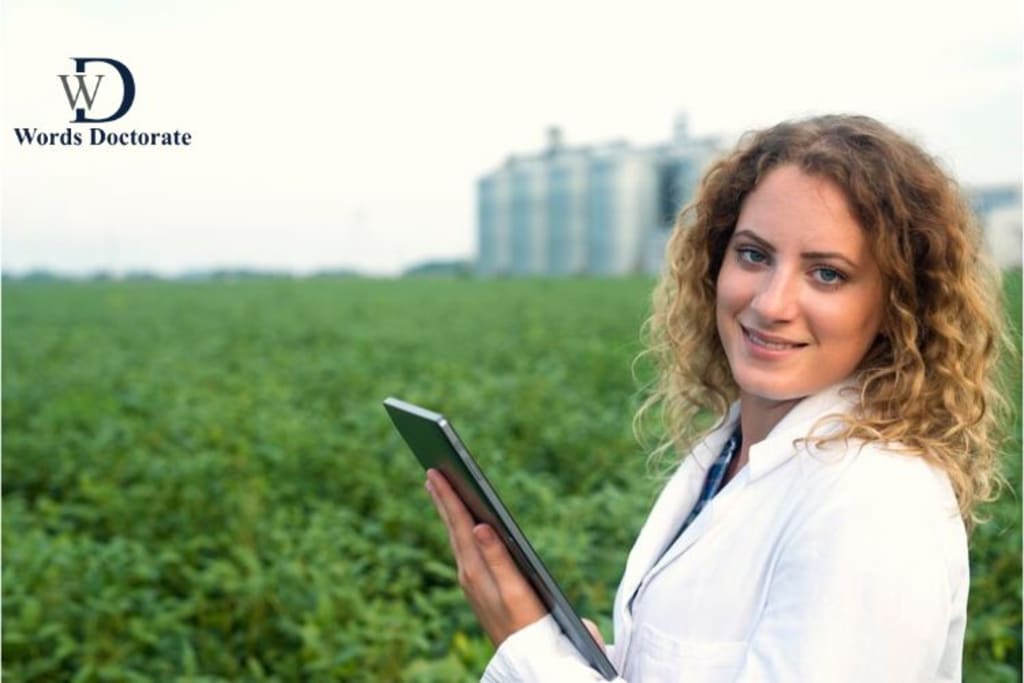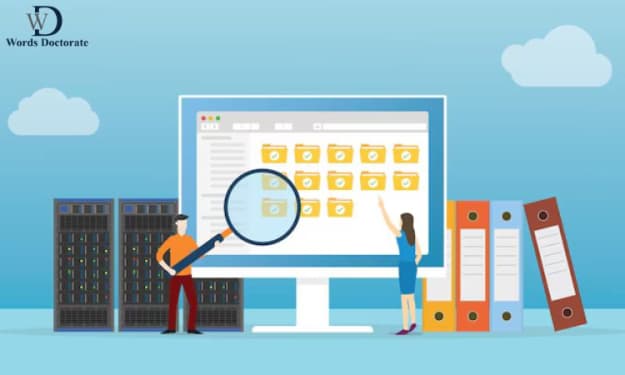Leveraging Big Data In Agricultural Research: A Pathway To Sustainable Farming Practices In Rotterdam
Big Data In Agricultural Research

Abstract:
Agriculture in Rotterdam, Netherlands, and many other places of the world is at the crossroads of tradition and innovation. By 2050, it is expected that there will be 9.7 billion people on the planet, making it imperative to increase agricultural output while reducing environmental effects. In this sense, big data analytics presents a revolutionary possibility by facilitating data-driven decision-making, precision agriculture, and sustainable agricultural methods. In light of Rotterdam, this paper investigates the potential of big data in agricultural research, emphasizing its uses, difficulties, and implications for long-term agricultural sustainability.
Current Trends In Big Data In Agriculture Research Paper Writing In Rotterdam
Precision farming: This method maximizes crop growth, minimizes waste, and increases yields by utilizing sensors and data analytics. Researchers in Rotterdam are investigating how precision farming methods might improve the sustainability and productivity of agriculture.
IoT and Sensor Technology: An enormous amount of data has been produced by the growing use of IoT devices and sensors in agriculture. In order to enhance crop monitoring, disease identification, and pest control, researchers in Rotterdam are creating techniques for analyzing and interpreting this data.
AI and machine learning: These two fields are being used to examine huge datasets and find trends that can help with agricultural decision-making. These methods are being investigated by Rotterdam researchers to forecast crop output, improve irrigation systems, and find early symptoms of illness.
Data Visualization and Integration: Big Data in Agriculture Requires Effective Data Visualization and Integration from Multiple Sources. In Rotterdam, researchers are working on techniques for combining data from sensors, weather stations, and other sources into a visual representation that is simple to comprehend and use.
Techniques Used In Big Data In Agriculture Research Paper Writing In Rotterdam
Pattern recognition and data mining: These two methods are crucial for examining big datasets in the agricultural industry. These methods are being used by researchers in Rotterdam to find trends in weather, soil moisture, and crop growth data.
Deep learning and machine learning: Deep learning and machine learning are two techniques that are being used to evaluate big datasets and find trends that can help in agricultural decision-making. These methods are being investigated by Rotterdam researchers to forecast crop output, improve irrigation systems, and find early symptoms of illness.
Data Integration and Fusion: Big data in agriculture depends on the integration of data from multiple sources into a single, cohesive dataset. Methods for integrating data from sensors, weather stations, and other sources are being developed by researchers in Rotterdam.
Data Visualization and Communication: Big data in agriculture requires effective data visualization and communication. Researchers at Rotterdam are creating techniques for data visualization that are simple to comprehend and utilize.
Applications Of Big Data In Agriculture Research Paper Writing In Amsterdam
Crop Monitoring and Yield Prediction: Two essential uses of big data in agriculture are crop monitoring and yield prediction. Data analytics and machine learning are being used by Rotterdam researchers to forecast crop yields and improve crop management.
Pest Control and Disease Identification: These two areas of agriculture face substantial difficulties. Big data analytics and machine learning are being used by Rotterdam researchers to identify early illness symptoms and improve pest control.
Irrigation Optimization: Improving crop yields and conserving water require effective irrigation. Rotterdam researchers are optimizing irrigation systems and cutting down on water loss by employing big data analytics and machine learning.
Sustainability and Environmental Impact: The environmental impact of agricultural operations can also be evaluated through the use of big data in agriculture. Researchers in Rotterdam are studying the application of big data analytics to assess the sustainability of agricultural operations and reduce environmental effects.
Latest Advancements In Big Data Applications For Agriculture In Rotterdam
Based on the search results provided, here are the latest advancements in big data applications for agriculture in Rotterdam, Netherlands:
Precision farming: In order to maximize crop growth, minimize waste, and increase yields, researchers in Rotterdam are investigating the application of precision farming techniques that make use of big data analytics and sensor technologies.
IoT and Sensor Technology: An enormous quantity of data is being produced by the growing usage of IoT devices and sensors in agriculture. In order to enhance crop monitoring, disease identification, and pest control, researchers in Rotterdam are creating techniques for analyzing and interpreting this data.
Artificial Intelligence and Machine Learning: Rotterdam researchers are analyzing massive agricultural datasets to find patterns that can help with decision-making by utilizing AI and machine learning approaches. This involves forecasting crop production, making irrigation systems better, and spotting illness symptoms early.
Data Visualization and Integration: Researchers in Rotterdam are working on techniques to combine data from multiple sources, including sensors, weather stations, and other outside sources, and to present the data in a clear and actionable manner.
Sustainability and Environmental Impact: Rotterdam-based researchers are investigating how big data analytics might be used to evaluate the sustainability of farming methods and lessen their negative effects on the environment.
Challenges Faced By Agricultural Researchers In Rotterdam When Using Big Data
Agricultural researchers in Rotterdam face several challenges when using big data, including:
Data Standardization and Quality: It is essential to make sure that data is standardized and of high quality. Effective data integration and analysis may be hampered by the varying formats, degrees of accuracy, and dependability of the data sources.
Low Awareness and Skills: It's possible that a large number of farmers and other agriculture industry stakeholders are unaware of the potential advantages of big data or lack the knowledge and experience necessary to properly gather and analyze the data. Programs for education and training will be needed to address this, in order to enable farmers and other stakeholders to become more capable and knowledgeable.
Cost and Return on Investment: Gathering and evaluating large amounts of data can be costly, especially for small farmers or those with little funding. It might be difficult to guarantee a favorable return on investment (ROI), especially in the short run.
Volume, Veracity, Variability, Velocity, and Variety: These five V's define big data in agriculture and present formidable obstacles to data processing, storage, and analysis. For instance, integration may be challenging due to the multiplicity of data sources and the potentially overwhelming amount of data produced by IoT devices, drones, and satellite photography.
Data Integration and Fusion: It is essential to combine data from multiple sources—such as sensors, weather stations, and other outside sources—into a unified, coherent dataset. However, because there are variations in data formats, accuracy levels, and dependability, this can be difficult.
Machine Learning and AI: Data science, machine learning, and artificial intelligence are among the specific knowledge and abilities needed for the analysis and interpretation of large amounts of data. Lack of these abilities may prevent many farmers and other agriculture industry participants from taking full use of big data's potential advantages.
In Conclusion
Big data in agricultural research paper writing in the Netherlands, is a fast expanding topic with multiple uses and prospects. Rotterdam researchers are actively investigating how to increase crop yields, decrease waste, and improve sustainability through the use of big data analytics, machine learning, and IoT technologies. The methods and uses covered in this article demonstrate how big data in agriculture has the power to revolutionize the sector and increase food security.
About the Creator
Enjoyed the story? Support the Creator.
Subscribe for free to receive all their stories in your feed. You could also pledge your support or give them a one-off tip, letting them know you appreciate their work.





Comments
There are no comments for this story
Be the first to respond and start the conversation.